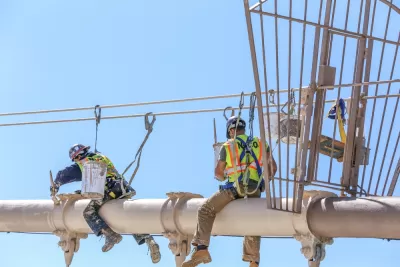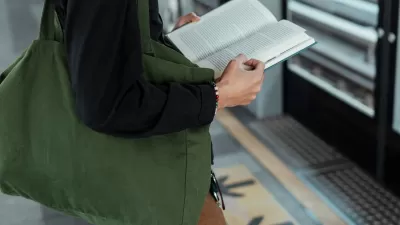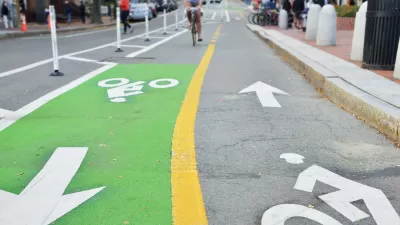A new book details what planners already know: cost estimates for major infrastructure projects are usually a farce. Another book foretells just how much new infrastructure will be needed in the coming waves of climate migration.

“Bent Flyvbjerg’s ‘iron law of megaprojects’ holds that only 47% of projects finish on-budget; 8.5% finish on-budget and on-time; and 0.5% finish on-budget, on-time, and deliver their intended benefits. Among the most perilous categories: nuclear storage, Olympic Games, dams, and information technology projects. Projects friendly to urban planners, like bus rapid transit, rail, and buildings don’t fare much better.”
“Whether they serve the public sector or private sector, they all have over a 70% chance of cost overruns. And ‘over-budget’ doesn’t mean a dollar or two. In many cases, overages reach 50% or 100% of a project’s original budget.”
“This is why we can't have nice things. Or, rather, this is why we can't have nicer, cheaper, and more timely nice things.”
“Displacement, by journalist Jake Bittle, which describes the type of geographic displacement that the early effects of climate change are causing and foretells the dramatic impacts of climate change a few decades from now.”
“The connection between the two books is chilling.... Major projects, and many of them, are going to be required both to mute the effects of climate change in vulnerable places and to accommodate the migrants in resilient places.”
FULL STORY: Book Review: Why We Can't Have Nice Things

Study: Maui’s Plan to Convert Vacation Rentals to Long-Term Housing Could Cause Nearly $1 Billion Economic Loss
The plan would reduce visitor accommodation by 25,% resulting in 1,900 jobs lost.

North Texas Transit Leaders Tout Benefits of TOD for Growing Region
At a summit focused on transit-oriented development, policymakers discussed how North Texas’ expanded light rail system can serve as a tool for economic growth.

Why Should We Subsidize Public Transportation?
Many public transit agencies face financial stress due to rising costs, declining fare revenue, and declining subsidies. Transit advocates must provide a strong business case for increasing public transit funding.

How to Make US Trains Faster
Changes to boarding platforms and a switch to electric trains could improve U.S. passenger rail service without the added cost of high-speed rail.

Columbia’s Revitalized ‘Loop’ Is a Hub for Local Entrepreneurs
A focus on small businesses is helping a commercial corridor in Columbia, Missouri thrive.

Invasive Insect Threatens Minnesota’s Ash Forests
The Emerald Ash Borer is a rapidly spreading invasive pest threatening Minnesota’s ash trees, and homeowners are encouraged to plant diverse replacement species, avoid moving ash firewood, and monitor for signs of infestation.
Urban Design for Planners 1: Software Tools
This six-course series explores essential urban design concepts using open source software and equips planners with the tools they need to participate fully in the urban design process.
Planning for Universal Design
Learn the tools for implementing Universal Design in planning regulations.
Ascent Environmental
Borough of Carlisle
Institute for Housing and Urban Development Studies (IHS)
City of Grandview
Harvard GSD Executive Education
Toledo-Lucas County Plan Commissions
Salt Lake City
NYU Wagner Graduate School of Public Service





























